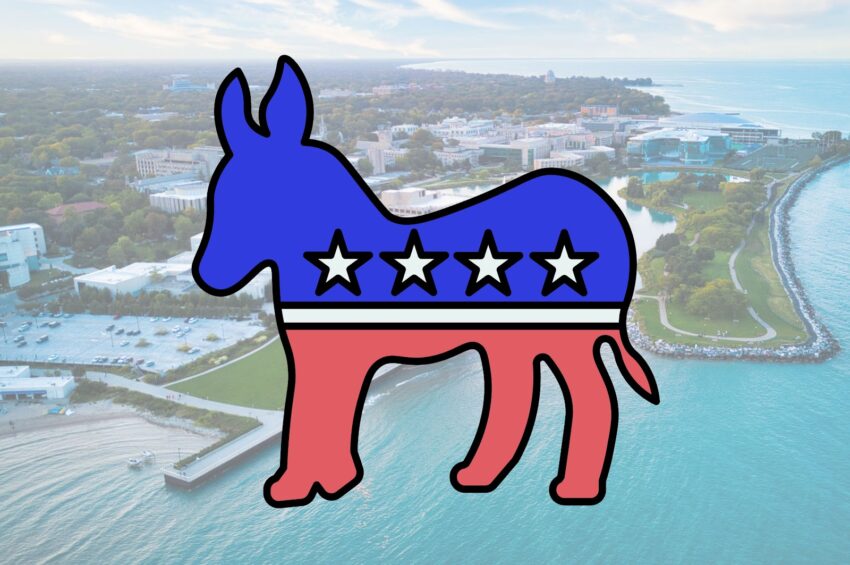BridgeNU hosted a bipartisan political forum between NU College Democrats, NU College Republicans and Young Americans for Freedom in Harris Hall on Tuesday. One major point of contention was food stamps, with Democratic students asserting that the federal government should be primarily responsible for underwriting Supplemental Nutrition Assistance Program benefits and Republican students arguing that burden should fall on the states. Responding to arguments that cutting SNAP would lead to starvation for people dependent on food stamps, McCormick senior and YAF President Caleb Nunes said the conversation around food insecurity from SNAP cuts had been “overly dramatized.” “We hear all about starving kids,” Nunes said. “In the United States, obesity is highly correlated with poverty. We actually have a caloric surplus problem, not a caloric deficit problem.” This led to a heated exchange between Nunes and the moderators, as Daily staffer and Medill sophomore Jack Baker asked for BridgeNU to fact-check Nunes’ claims. Participants were presented with a variety of statements from three major topics affordability, academia and foreign policy and asked to move to either side of the room to reflect their agreement or disagreement with each statement in the style of the popular political YouTube channel Jubilee. Another dispute was over the efficacy of the United States Agency for International Development, the foreign aid agency that the Trump administration shuttered in July. Almost all students, except for a few conservatives, agreed with the statement that USAID provided “concrete benefits to the United States.” Weinberg sophomore Max Schlanger stood at the most anti-USAID side of the room. “It’s pretty hard to justify giving money to other countries, especially when affordability was the first topic we discussed,” Schlanger said. “I don’t really see why it affects Americans. The purpose of our government is to benefit Americans.” The three topics were generally split evenly along partisan lines, with some exceptions. Some conservative students agreed that companies were responsible for price hikes, and some Democrats agreed that universities disproportionately supported liberal ideas and speech. Other than a few conservative students, all participants agreed the federal government should not be involved in the appointment of university presidents. No students, liberal or conservative, indicated that they were optimistic about the long-term prospects of the Israel-Hamas ceasefire. Medill senior Milan Afshar said he appreciated the forum as an opportunity to engage in civil discourse. “BridgeUSA does a great job of creating structured environments where people can actually discuss what they think about topics that may be a little bit more in-depth than what’s traditionally argued in mainstream media,” Afshar said. Communications junior Natalie May, who co-moderated the forum, provided live fact-checking. When requested by student participants, she intervened in several factual disputes, including claims about the effects of the Affordable Care Act and whether students at NU portray themselves as more liberal than they are to professors. “We tried to check multiple sources from different kinds of partisan sources, not just check liberal or conservative sources,” May said. “A lot of it was kind of hard to fact-check. It was kind of subjective stuff.” Email: maxturetzky2029@u. northwestern. edu X: @MaxTuretzky Related Stories: Students meet Democratic Election-Day victories with enthusiasm Mark Krikorian advocates for immigration restriction at NU YAF event, meets NU Democrats criticism.
https://dailynorthwestern.com/2025/11/19/campus/liberal-conservative-student-groups-debate-at-bridgenu-political-forum/
